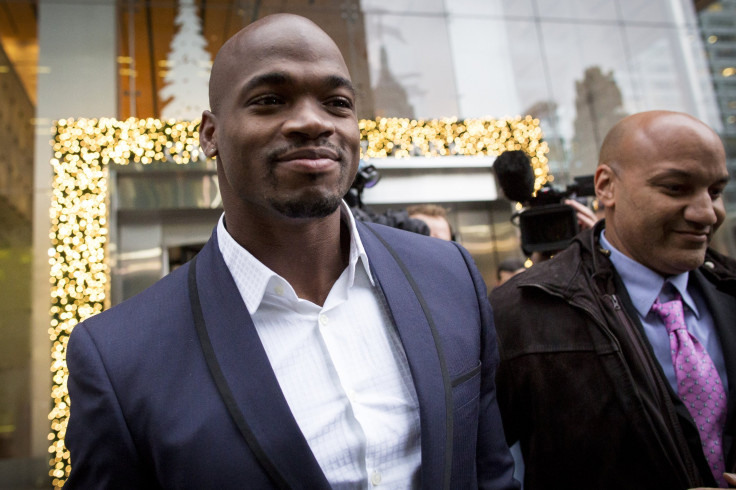Who Is David Doty? Judge Who Reinstated Adrian Peterson Has History Of Siding Against NFL

The Minnesota judge who reinstated embattled NFL player Adrian Peterson Thursday has a history of ruling against the league. U.S. District Court Judge David Doty overturned an NFL arbitrator’s decision to suspend Peterson, who was spared jail time when he entered into a plea agreement with a Texas court after he admitted abusing his 4-year-old son.
The NFL players union, which represents Peterson, had appealed the arbitrator's decision in federal court, and Doty overturned it, but it’s unclear whether the NFL will reinstate the star Minnesota Vikings running back immediately or on March 10, the start of the NFL’s new year, Minnesota radio station KFAN reported. The NFL has indicated it will appeal Doty's ruling.
Doty, who is in his 80s, grew up in Minnesota and played collegiate football as a linebacker for the University of Minnesota. He has a record of being sympathetic to players in their cases against the NFL, according to a 2011 New York Times story. “Since soon after his appointment to the bench by President Ronald Reagan in 1987, Doty has regularly ruled against the league,” according to the report.
Doty was also the judge for a jury trial for a lawsuit claiming that a provision of the NFL’s free agency system violated antitrust laws. The jury ruled against the NFL and Doty threatened to craft his own free agency plan if the NFL and the players union didn’t come up with one on their own, the Times reported. The two sides came to a deal in 1993.
Doty also found in 2011 that the NFL went against the interests of its players because it didn’t maximize revenue from television networks when it negotiated a $4 billion deal. “The record shows that the NFL undertook contract renegotiations to advance its own interests and harm the interests of the players,” he ruled, according to the Times. The ruling was seen as “irrefutable evidence that owners had a premediated plan to lock out players and fans for more than two years,” the players union said.
The NFL lockout, which threatened the 2011 season when the two sides failed to sign off on a collective bargaining agreement, ended on July 25, 2011.
© Copyright IBTimes 2024. All rights reserved.












